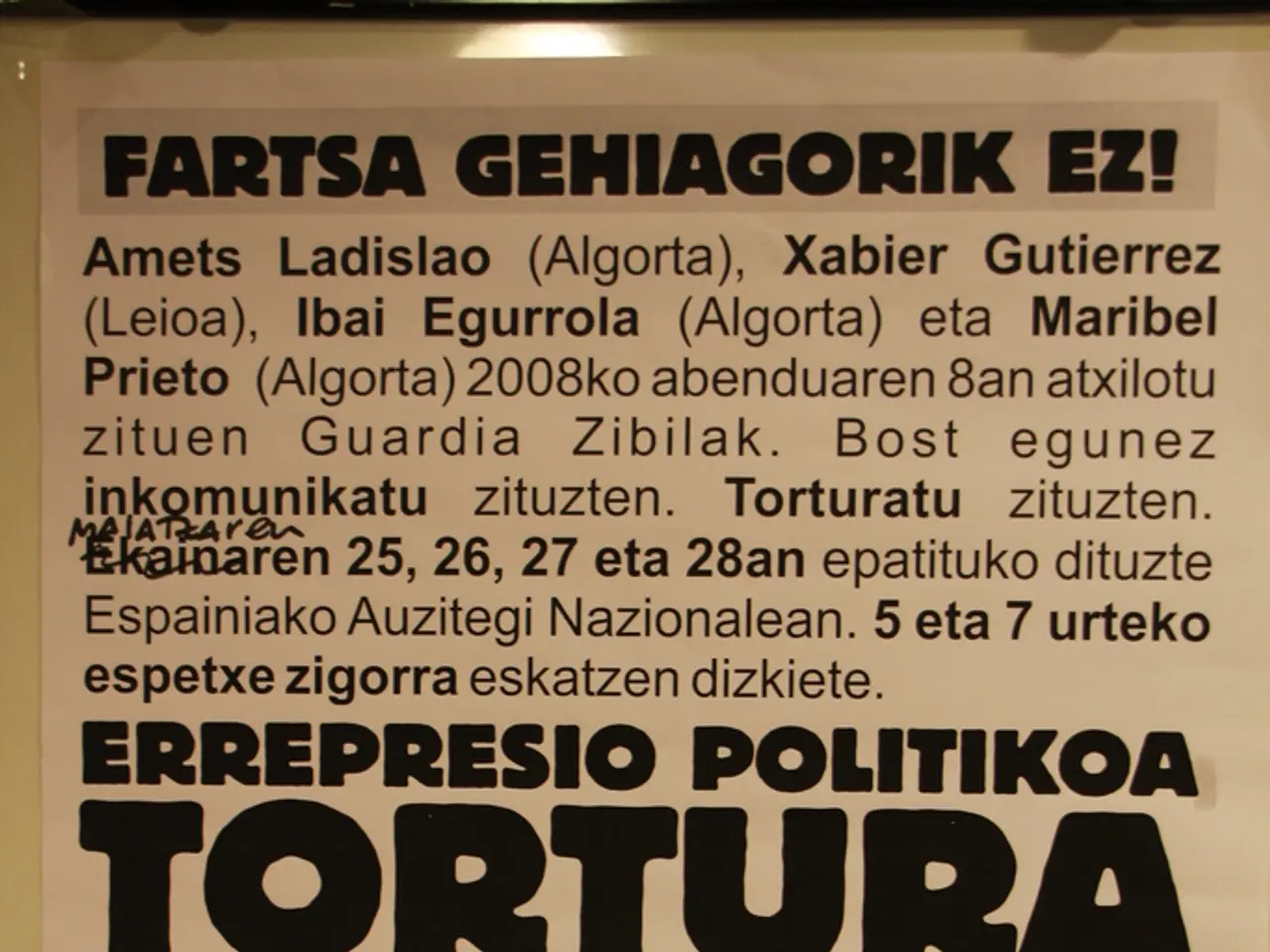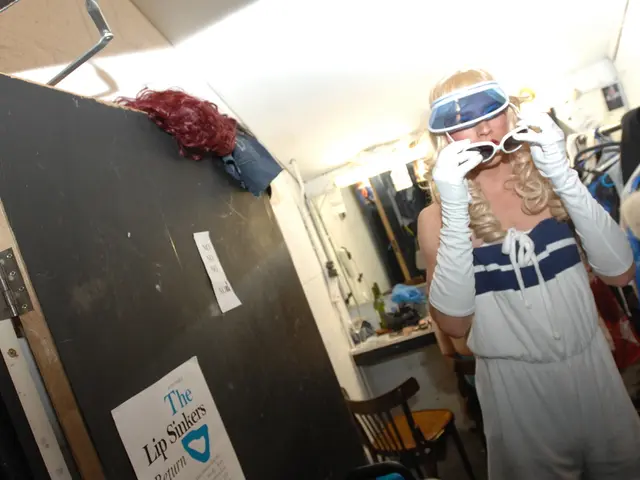World Beyond Borders: Economic Struggle, Heatwave, and European Influence Greet Argentina
Buenos Aires, a bustling metropolis with a large population, offers a navigable cityscape. Google navigation proves helpful during the first days, and easy travel by foot or underground makes exploring the city a breeze for visitors [1].
Karolis Kasarauskas, a graduate of Vytautas Magnus University, embarked on an exciting journey in February 2024. As a participant of the Erasmus+ exchange program at the University of Belgrano, he spent the second semester of his master's studies in Argentina [2]. However, his journey was not without challenges.
Bureaucratic obstacles, such as prolonged document processing and the need to travel to Warsaw twice for his visa, were hurdles Karolis had to overcome [1]. Yet, his supervisor, a teacher with experience in political practice, provided a unique perspective, allowing him to delve into regional issues with a fresh outlook [3].
Karolis's research paper examined U.S.-Latin American relations during the first years of Donald Trump's and Joe Biden's terms [3]. South America was a personal scientific challenge for him, as he had written his bachelor's and master's theses about U.S.-Latin American relations [3].
The University of Belgrano, with its focus on studies in politics, history, and economics, offered Karolis the perfect opportunity to write a research paper and acquire a Latin American studies certificate [4]. However, the official language of Argentina, Spanish, and the lack of dormitories for students, presented some adjustments [4].
Rent was usually offered by families, with students from Western Europe or the U.S. becoming their main clients [4]. Argentines have a high consumption of Coke due to their fondness for mixing it with Italian liquor fernet [5]. Vegetarian options can be limited, making it difficult for vegans to eat properly [5].
Argentina's university system does not provide students with dormitories; rent is usually offered by families, and students from Western Europe or the U.S. become their main clients [4]. When Karolis arrived in Argentina in February of 2024, the country was in the midst of a crisis due to the implementation of radical economic reforms by Javier Milei [6].
Imported goods in Argentina, such as Coke, were more expensive than local products [5]. The cost of eating out in Argentina was cheaper than in Lithuania, with discounted food delivery apps offering large steaks for around three euros [5]. Argentine cuisine is heavily influenced by meat and its products, with asado being the most popular dish [5].
Weather conditions in Argentina are radically different from Lithuania, with summer being winter and vice versa. Tourists should be prepared for high temperatures and mosquitoes [7]. Many Argentine dishes, unlike those in Bolivia or Peru, have origins in Europe, specifically Italy [7].
Public transport reform presented additional challenges because the issuing of new public transport cards was disrupted, making it impossible to use public transportation without the Sube card [7]. Karolis had planned to live according to the dual exchange rate, but when he arrived, using a bank card became even cheaper [7].
As of mid-2025, Argentina is experiencing significant political turbulence and economic challenges under President Javier Milei's far-right administration, with both critical risks and opportunities for future political scientists [8]. Argentina's political and economic situations should be considered when planning a trip, as certain areas may be unsafe or have transportation disruptions due to strikes or protests [1].
Argentina's political landscape is marked by electoral uncertainty, institutional clashes, and radical economic reforms, providing a rich field for studying democratic resilience, populism, and governance crises [8]. The tension between austerity-driven economic shock therapy and social demands for inclusion and pensions presents a live case of economic policy challenges in emerging markets [8].
The role of Argentina as a resource-rich country integrating into global supply chains (energy and critical minerals) creates strategic geopolitical and economic research opportunities [2]. The restrictive migration policies also open investigations into migration governance, human rights, and regional South American political dynamics [5].
In summary, Argentina in 2025 is a complex and volatile environment with acute political conflicts and economic challenges under Milei’s presidency, but also holds significant opportunities for policy innovation and international economic engagement — making it a compelling case study for aspiring political scientists [8]. Despite the challenges, Karolis's journey in Argentina was an enriching experience, offering him valuable insights into U.S.-Latin American relations and the intricacies of Argentine politics and culture.
[1] Buenos Aires, despite its large population, is navigable, with Google navigation helpful during the first days and easy travel by foot or underground. [2] Karolis Kasarauskas, a graduate of Vytautas Magnus University, spent the second semester of his master's studies in Argentina as a participant of the Erasmus+ exchange program at the University of Belgrano. [3] Karolis's supervisor was a teacher with experience in political practice, allowing him to look at regional issues from a different perspective. [4] Karolis's research paper examined U.S.-Latin American relations during the first years of Donald Trump's and Joe Biden's terms. [5] South America was a personal scientific challenge for Karolis, who wrote his bachelor's and master's theses about U.S.-Latin American relations. [6] Milanesa napoletana is a popular Argentine dish, consisting of a breaded steak topped with cheese and tomato sauce. [7] Karolis selected the University of Belgrano because it offered studies in politics, history, and economics, and he had the opportunity to write a research paper and acquire a Latin American studies certificate. [8] The official language of Argentina is Spanish, and English is not commonly spoken. [9] Argentina's university system does not provide students with dormitories; rent is usually offered by families, and students from Western Europe or the U.S. become their main clients. [10] When Karolis arrived in Argentina in February of 2024, the country was in the midst of a crisis due to the implementation of radical economic reforms by Javier Milei. [11] Imported goods in Argentina, such as Coke, were more expensive than local products. [12] The cost of eating out in Argentina was cheaper than in Lithuania, with discounted food delivery apps offering large steaks for around three euros. [13] Argentines have a high consumption of Coke due to their fondness for mixing it with Italian liquor fernet. [14] Vegetarian options can be limited in Argentina, making it difficult for vegans to eat properly. [15] Argentine cuisine is heavily influenced by meat and its products, with asado being the most popular dish. [16] Weather conditions in Argentina are radically different from Lithuania, with summer being winter and vice versa. Tourists should be prepared for high temperatures and mosquitoes. [17] Many Argentine dishes, unlike those in Bolivia or Peru, have origins in Europe, specifically Italy. [18] Public transport reform presented additional challenges because the issuing of new public transport cards was disrupted, making it impossible to use public transportation without the Sube card. [19] Karolis had planned to live according to the dual exchange rate, but when he arrived, using a bank card became even cheaper. [20] As of mid-2025, Argentina is experiencing significant political turbulence and economic challenges under President Javier Milei's far-right administration, with both critical risks and opportunities for future political scientists. [21] The political and economic situations should be considered when planning a trip, as certain areas may be unsafe or have transportation disruptions due to strikes or protests. [22] The opposition-controlled Senate has passed bills increasing pensions and social spending, directly opposing Milei’s austerity plans, signaling legislative gridlock. [23] Milei is facing a governing crisis after broad legislative powers granted to him expired in July 2025, prompting a resurgence of opposition both in Congress and among provincial governors who rely on federal funds and infrastructure projects that have stalled. [24] Milei’s party, La Libertad Avanza, is preparing for critical legislative elections in October 2025, which may determine whether he can advance his economic agenda by increasing legislative seats. However, Milei remains politically isolated, lacking sufficient deputies and senators. [25] Milei advocates radical economic reform, proposing drastic cuts in government size and spending, including merging or eliminating major ministries, privatizing state-owned enterprises (notably YPF shale driller), and scrapping certain taxes. [26] Despite these plans, the Argentine peso has depreciated significantly against the dollar, risking erosion of Milei’s economic program. [27] His government has issued high-interest bonds (up to 40%) to curb dollarization and attract investors. [28] Argentina’s economy holds major opportunities through energy resources: the Vaca Muerta shale formation (second largest shale gas and fourth largest shale oil reserve worldwide) positions Argentina as a potential energy exporter, critical in global LNG and crude markets. [29] Additionally, Argentina’s vast critical mineral deposits, notably lithium, are strategically important amid global demand for electric vehicle batteries and green technologies, providing leverage for economic growth if well managed. [30] The Milei administration has adopted restrictive immigration measures resembling policies introduced in the U.S. under Trump, significantly limiting asylum access, residency, and migrants’ access to social services, shifting policy towards criminalization of migrants. [31] Argentina hosts nearly 2 million foreign-born residents, largely from neighboring countries, and Milei's policies have sparked criticism regarding human rights and regional relations. [32] The tension between austerity-driven economic shock therapy and social demands for inclusion and pensions provides a live case of economic policy challenges in emerging markets. [33] The role of Argentina as a resource-rich country integrating into global supply chains (energy and critical minerals) creates strategic geopolitical and economic research opportunities. [34] The restrictive migration policies also open investigations into migration governance, human rights, and regional South American political dynamics. [35] Argentina’s rapidly evolving political landscape, marked by electoral uncertainty, institutional clashes, and radical economic reforms, presents a rich field for studying democratic resilience, populism, and governance crises. [36] The implications for a future political scientist are vast, with Argentina’s political and economic challenges offering a wealth of opportunities for research and understanding.
- Karolis, having a background in education-and-self-development, faced financial challenges associated with bureaucratic hurdles and expensive imported goods in Argentina, particularly Coke, during his period of study in politics.
- The lifestyle in Argentina, characterized by a high consumption of Coke and Italian liquor fernet, and an emphasis on meat-based dishes, presented adjustments for Karolis, a vegan visitor, in terms of food options.
- In the realm of general-news, political turbulence and economic challenges under President Javier Milei's administration have made Argentina a compelling case study, offering opportunities for future political scientists to explore topics like democratic resilience, populism, governance crises, and migration governance.




